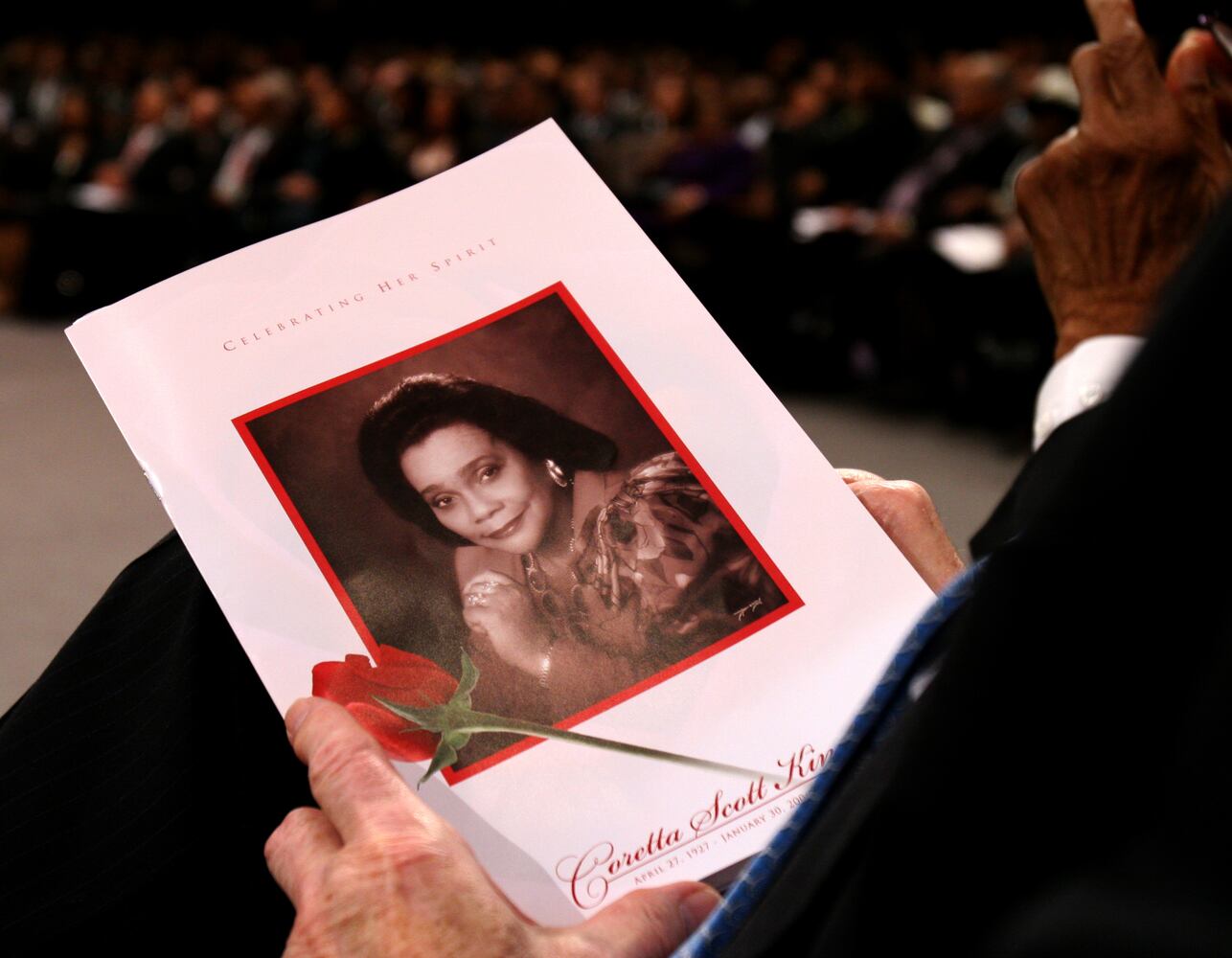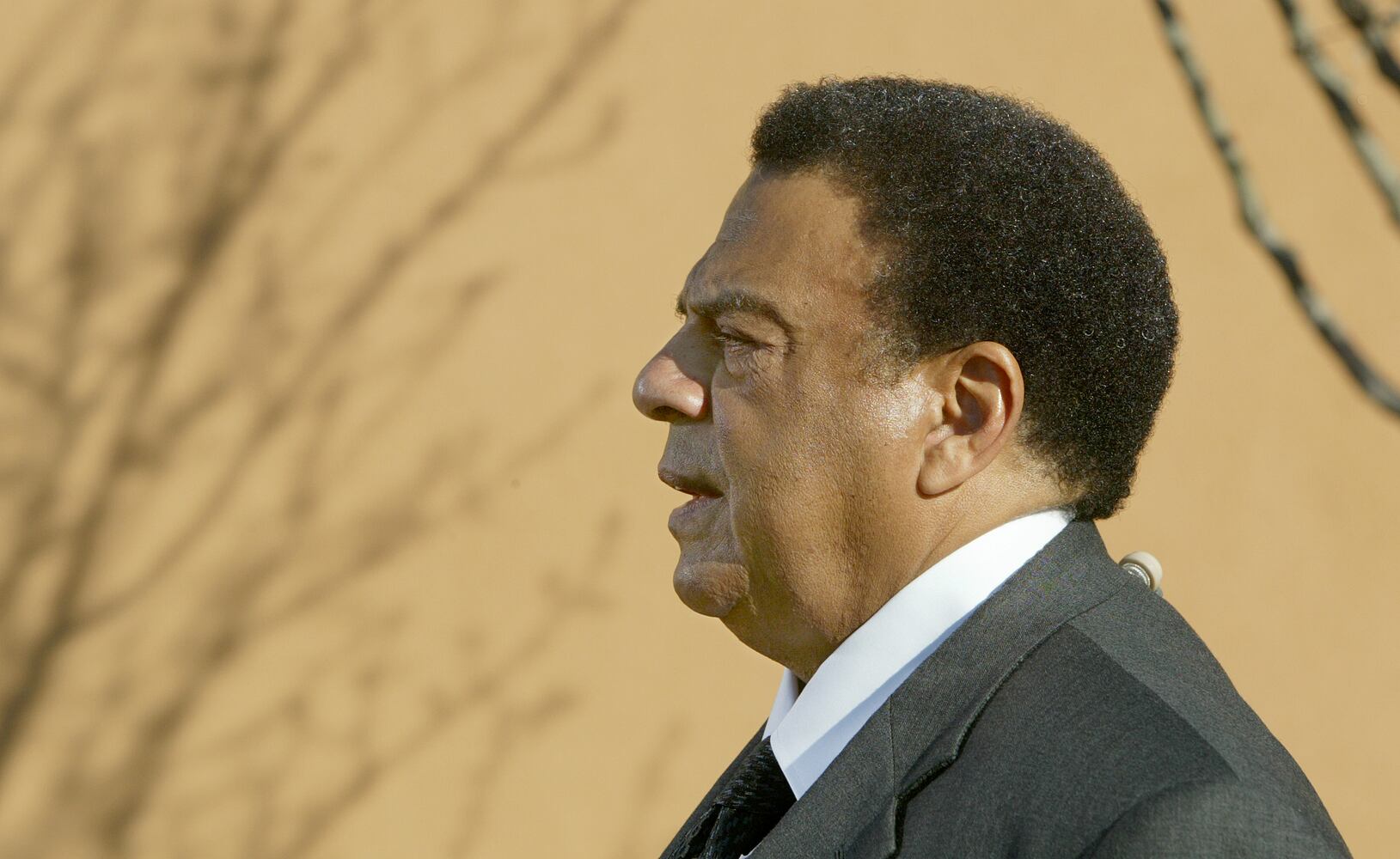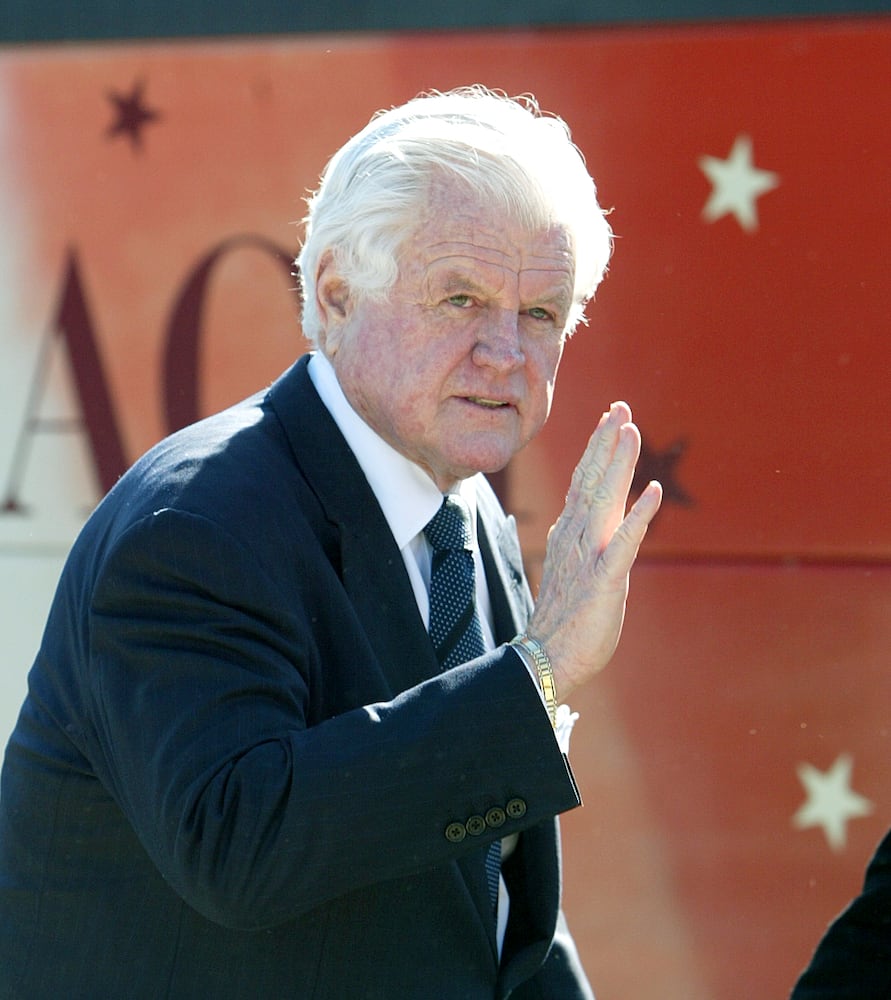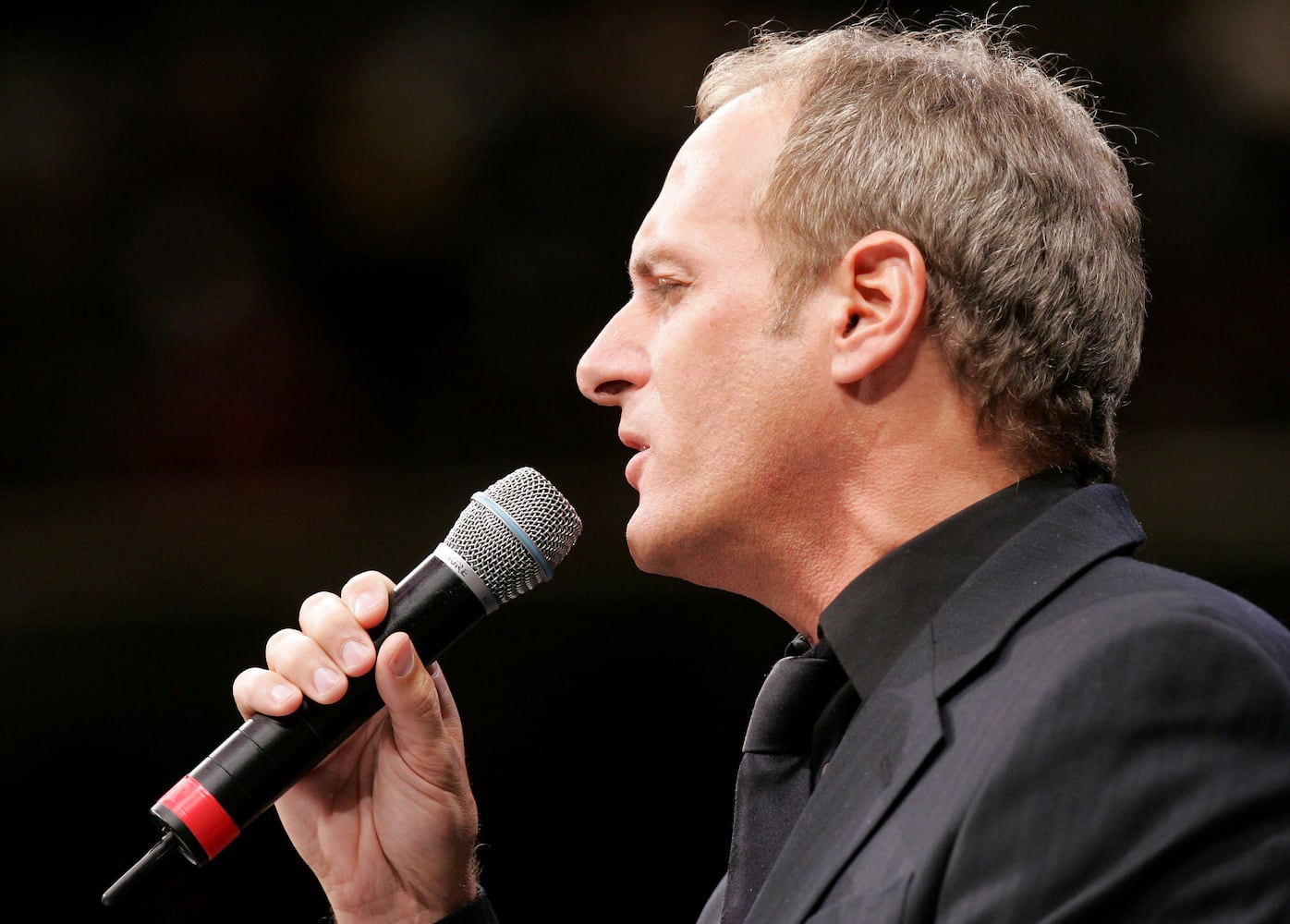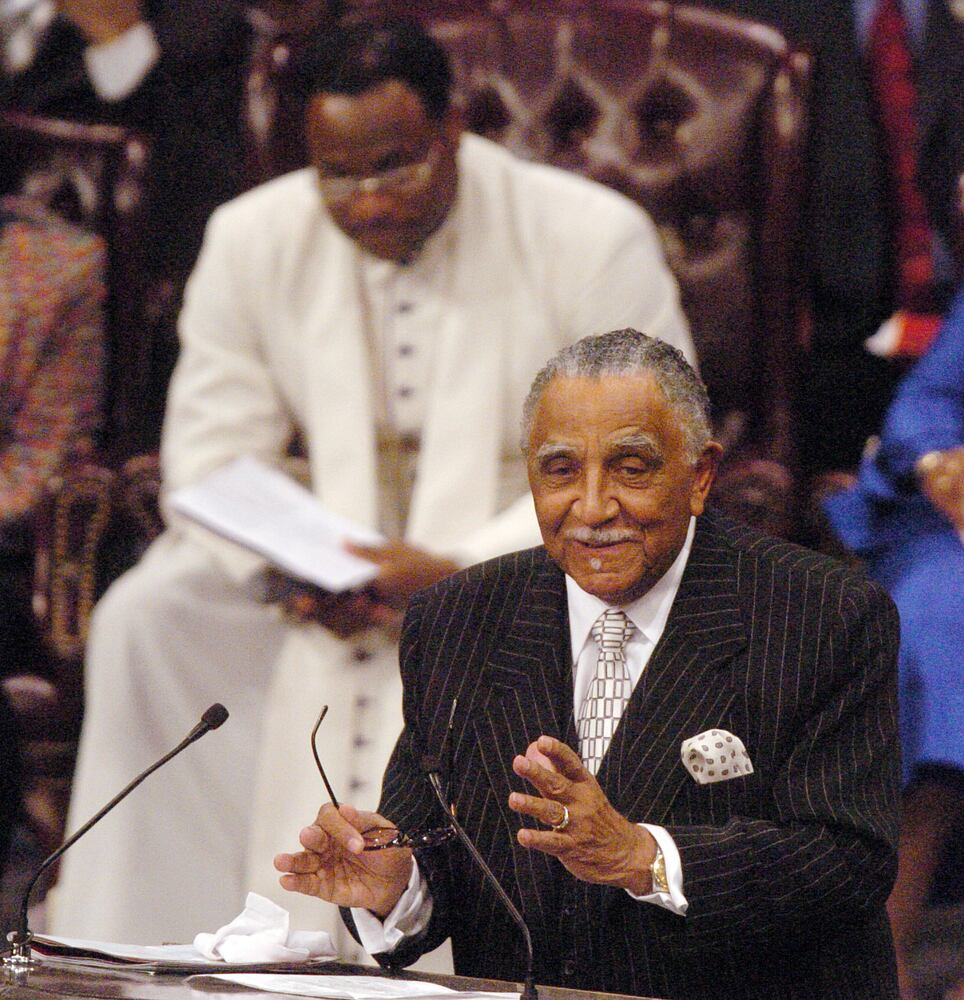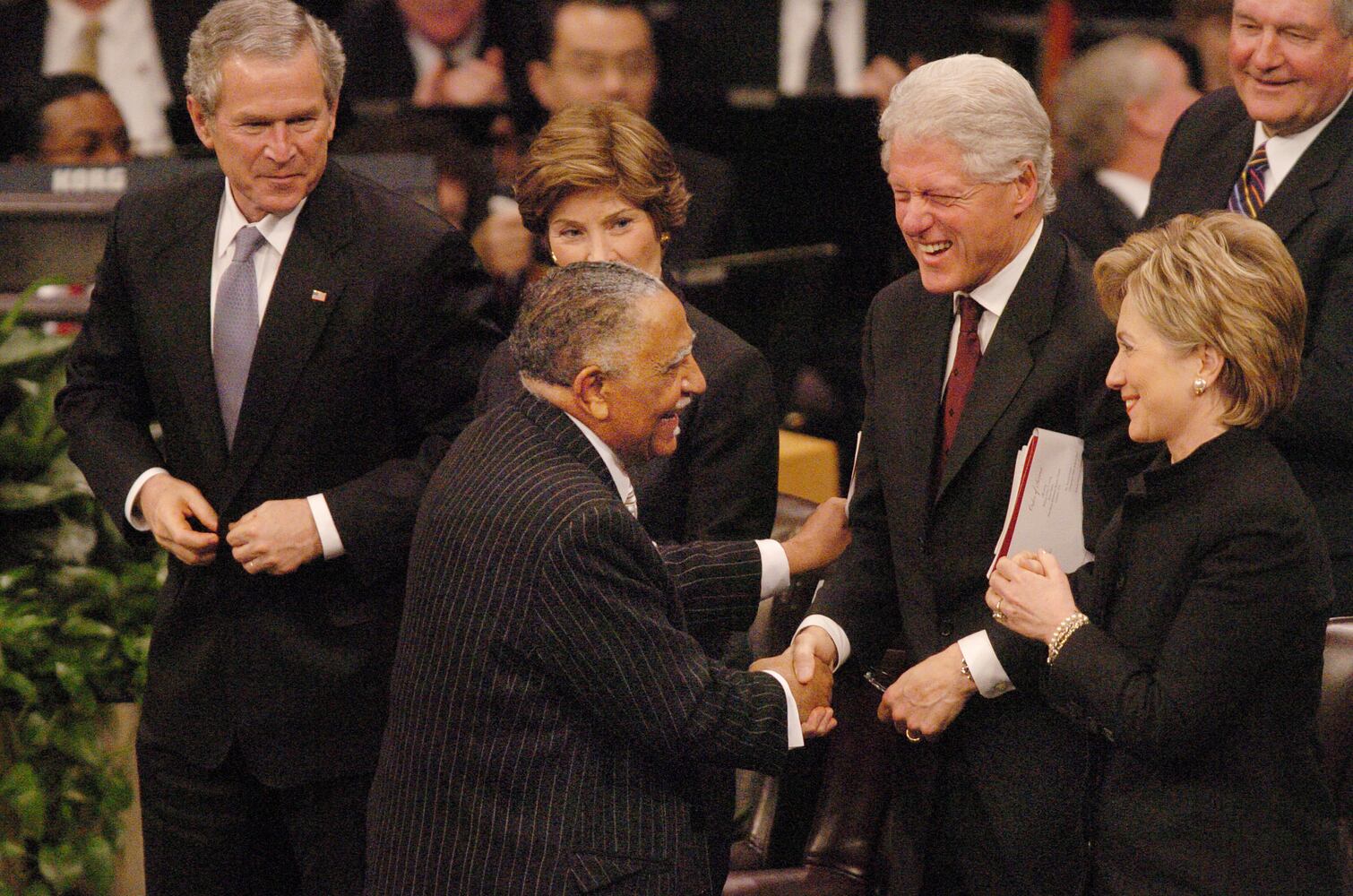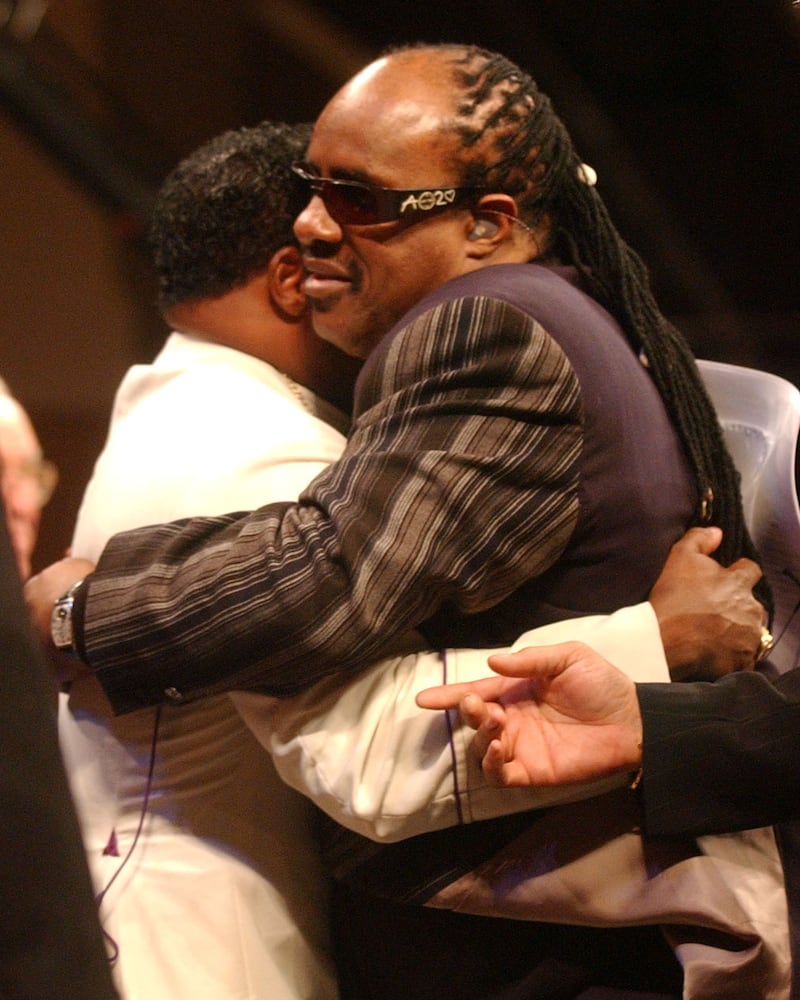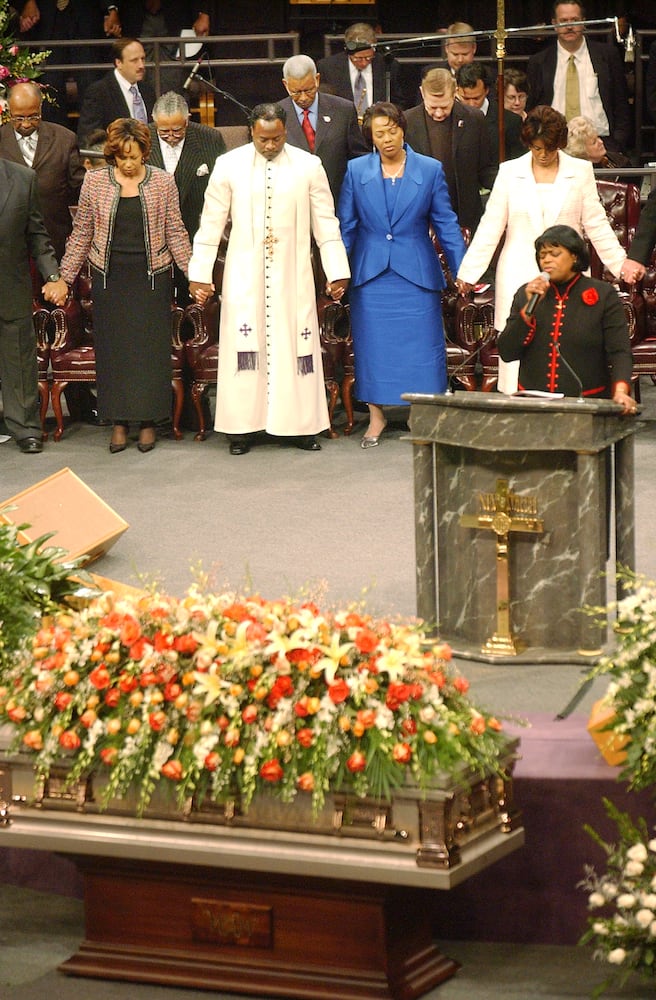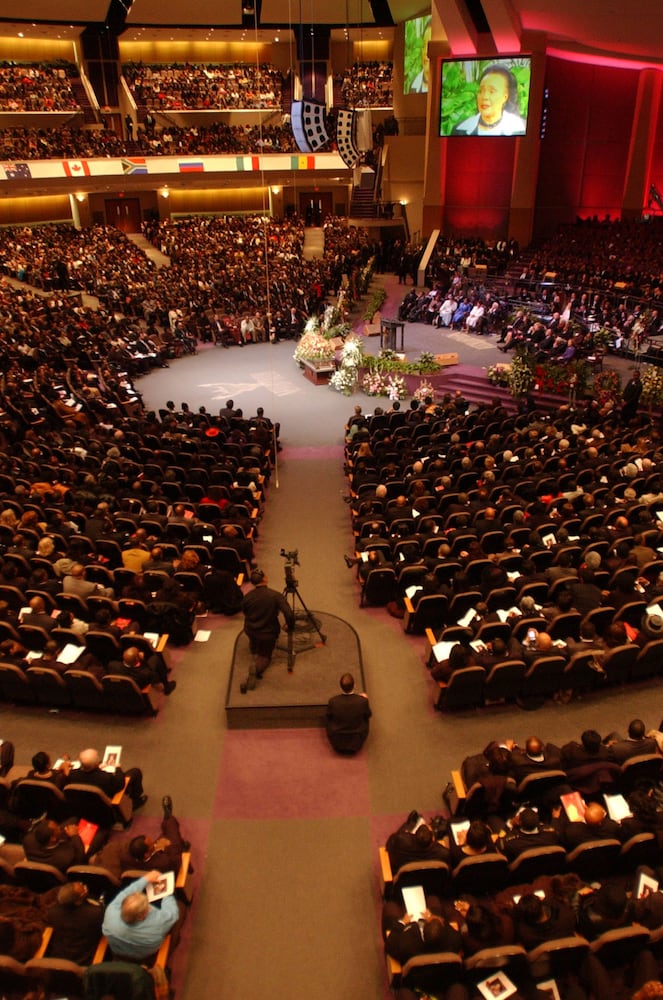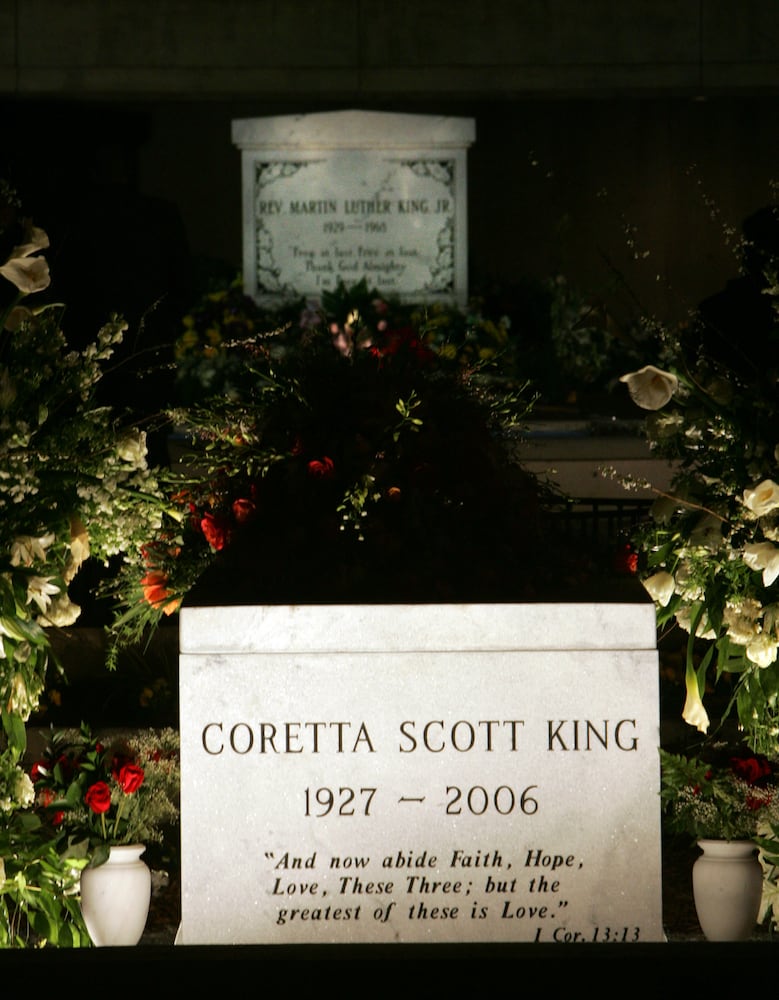Published Feb. 8, 2006
Ten thousand.
That’s how many squeezed into the sanctuary of New Birth Missionary Baptist Church on Tuesday morning to offer their final goodbyes.
But many more would have attended the funeral of Coretta Scott King -- were there space.
And so, across Atlanta and Georgia and other parts of the country, people everywhere prayed in their own way. They celebrated a life lived long and well, a life that changed the nation and the world.
On television, and at home, work or school, they listened as the powerful and famous spoke of the strength and dignity of a woman who sought to be neither powerful nor famous.
The noontime service is about to begin, and the fortunate thousands inside the church await the arrival of the King family. Mourners are soothed by the triumphant voices of the New Birth Total Praise Choir and the regal sound of the Atlanta Symphony Orchestra.
At the King Center, Larry Faulkner is quietly at work. He bends down to run one last line of caulk along a seam of Coretta Scott King’s tomb. Meanwhile, in the memorial garden around the temporary tomb, landscapers have been here since 8 a.m., putting in dozens of holly and gardenia bushes, spiral juniper and multicolored pansies.
On the other side of downtown, at Spelman College’s Sisters Chapel, Theo McNair is fiddling with a pair of rabbit ear antennas, trying to pull in the broadcast of the funeral.
“I bought them yesterday,” says McNair. “There’s no cable in this building.”
Another technical problem is glare from the sunlight pouring into the chapel through the towering church windows. The sunlight has bleached out the picture.
Soon, several students start melting away from the chapel, making the block or so walk to the Cosby Auditorium. There, the room is properly darkened --- and they’re wired for cable.
They will watch it there.
“Coretta married a vision and a destiny,” Bishop Eddie L. Long reminds the crowd. That destiny, says Long, dressed in a white, flowing celebratory robe, lives on.
At Antioch College in Ohio, Mrs. King’s alma mater, Katrina Dorsey chats with a friend in Atlanta on her cellphone as the sweet music of the New Birth choir radiates from her television.
“Everybody’s there. All the presidents. Everybody.”
A colorful handmade banner with the words from Antioch’s honor code hangs over the television, which has been wheeled in for the occasion. It reads, in part: “Antioch College is a community dedicated to the search for truth, the development of individual potential and the pursuit of social justice. In order to fulfill our objectives, freedom must be matched by responsibility.”
There are four presidents here today, current and former. As Former President Bill Clinton stands near Coretta Scott King’s casket, a huge cheer erupts from the crowd.
Inside the Inspirations Hair Studio in Duluth, Ricardo Moor slathers perm over the scalp of his afternoon appointment.
Two televisions suspended overhead broadcast the funeral in stereo.
This is a piece of history that Moor, a well-coiffed man of 45 with an athletic build and 5-o’clock shadow, cannot miss. He is even wearing black.
“We should have closed today,” Moor says with an eye on a TV and the empty chairs in his salon. Today the first lady of the civil rights movement is being laid to rest and business is slow.
Twice he leaves the shampoo bowl with suds on his hands to sneak a peek at the processional. First he is drawn by the thunderous applause for Clinton. “He could run for president and win again,” Moor says.
“Coretta,” President George W. Bush tells a rapt audience, “had every right to count the cost and step back from the struggle [after threatening calls and a bombing at the King house]. But she decided that her children needed more than a safe home --- they needed an America that upheld their equality and wrote their rights into law. Coretta Scott King not only secured her husband’s legacy, she built her own.”
Morehouse College student Fred Pugh knows he should be attending philosophy class. Instead, he’s sitting in one of the school’s cafeterias watching the funeral.
This is where Martin Luther King attended college --- and the site where the mule-drawn carriage march carrying his body ended in 1968.
“By her strength at home she played an equal role in the struggle,” Pugh says. “You can argue that she played an even bigger role.”
There was talk classes would be canceled at Morehouse, but they weren’t.
Pugh wants to hear more of the speeches, particularly the eulogy, but . . .
“A little late for class?” fellow Morehouse senior Devin Brown asks.
“Yeah,” Pugh replies.
“She stood up and fought like a lioness,” Zanele Mbeki, first lady of the Republic of South Africa, says softly from the stage. On this day, Mbeki is part of the world community mourning her passing.
At Riverwood High School in Sandy Springs, students in Cristal Squaire’s Spanish class thumb through dictionaries looking for words to fill out essays about how they can continue the fight for human rights.
Squaire says she wanted the students to glimpse Coretta Scott King’s private side.
Several students beg to watch the funeral on TV, but Squaire, who speaks mostly Spanish in class, says she is taping it and will show it later.
Besides, Squaire tells the class, it would last several hours, which surprises some students.
“Maya Angelou, Bill Clinton. It will be interesting to hear everything they have to say,” says Ashley Eady, a 15-year-old sophomore.
Paulo Santose, a junior who moved to the United States from Brazil three years ago, says he admired King’s determination to fight for civil rights --- even after her husband was assassinated.
“For me, Mrs. King , she was, like, a brave woman,” he says. “For us immigrants, she had a lot of influence on what America is like for us.”
“Who could have brought this crowd together but Coretta?” the Rev. Joseph E. Lowery asks the crowd. He knows the answer. As his voice booms from the stage, there’s a long burst of applause.
The brick auditorium with an aged oak scent is all that’s left of Lincoln School in Marion, Ala.
Long before Coretta Scott was a King, she was a quiet student here.
Inside Lottie’s diner in downtown Marion, a small lunch crowd nibbles on chicken salad and other goodies, their eyes fixed on the television.
Here, in Perry County, life is still a struggle for many.
Of the county’s 11,861 residents, only 701 graduated from college.
It is, without a doubt, a segment of the poor South.
But Coretta Scott King, residents will quickly tell you, is a source of local pride, a young lady who concentrated on education and in the end became synonymous with the word grace.
“I’m proud knowing that she’s a native of Perry County,” says one the patrons, Angela Smith.
In her eulogy to her mother, the Rev. Bernice King challenges the crowd that it is time for the world to be born again --- time to see what God does “with the seed of Martin and Coretta.” At 6 p.m., nearly six hours after the service began, King’s casket is carried out of the sanctuary. The choir sings the “Hallelujah” chorus from Handel’s “Messiah.”
Back at the King Center, police add more barricades. Mourners have left at least 30 bouquets. The crowd continues to grow. And landscapers hurriedly finish their job.
Coretta Scott King will come home.
Staff contributors to coverage of Coretta Scott King’s death and funeral
Reporters: Ernie Suggs, Mae Gentry, Maria Saporta, Add Seymour, Kay Powell, Bill Torpy, Sonji Jacobs, John Blake, Bob Kemper, Craig Schneider, Phil Kloer, Rodney Ho, Brian Feagans, Jim Tharpe, Bo Emerson, Karen Hill, Jim Galloway, Brenden Sager, Richard L. Eldredge, Drew Jubera, Mike Morris, Bill Montgomery, Saeed Ahmed, Ty Tagami, Pierre Ruhe, Nick Marino, Michelle Hiskey, Alan Judd, M.A.J. McKenna, Bob Keefe, Ken Herman, Jim Auchmutey, Rhonda Cook, Lateef Mungin, Cameron McWhirter, Eric Stirgus, George Chidi, Jeffry Scott, Kristina Torres, Bridget Gutierrez, Paul Donsky, David Simpson, Sonia Murray, Charles Yoo, Andrea Jones, Aileen Dodd, Shelia Poole, Teresa Borden and Patti Ghezzi.
Photographers: John Spink, Rich Addicks, W.A. Bridges Jr., Jenni Girtman, Charlotte B. Teagle, Bita Honarvar, Bob Keefe, Mikki K. Harris, Ben Gray, Brant Sanderlin, Johnny Crawford, Joey Ivansco and Louie Favorite.
Graphics: Jerome Thompson, Dale Dodson, Walter Cumming and Charles Jones.
News researchers: Sharon Gaus, Richard Hallman, Alice Wertheim and Joni Zeccola
About the Author
The Latest
Featured
